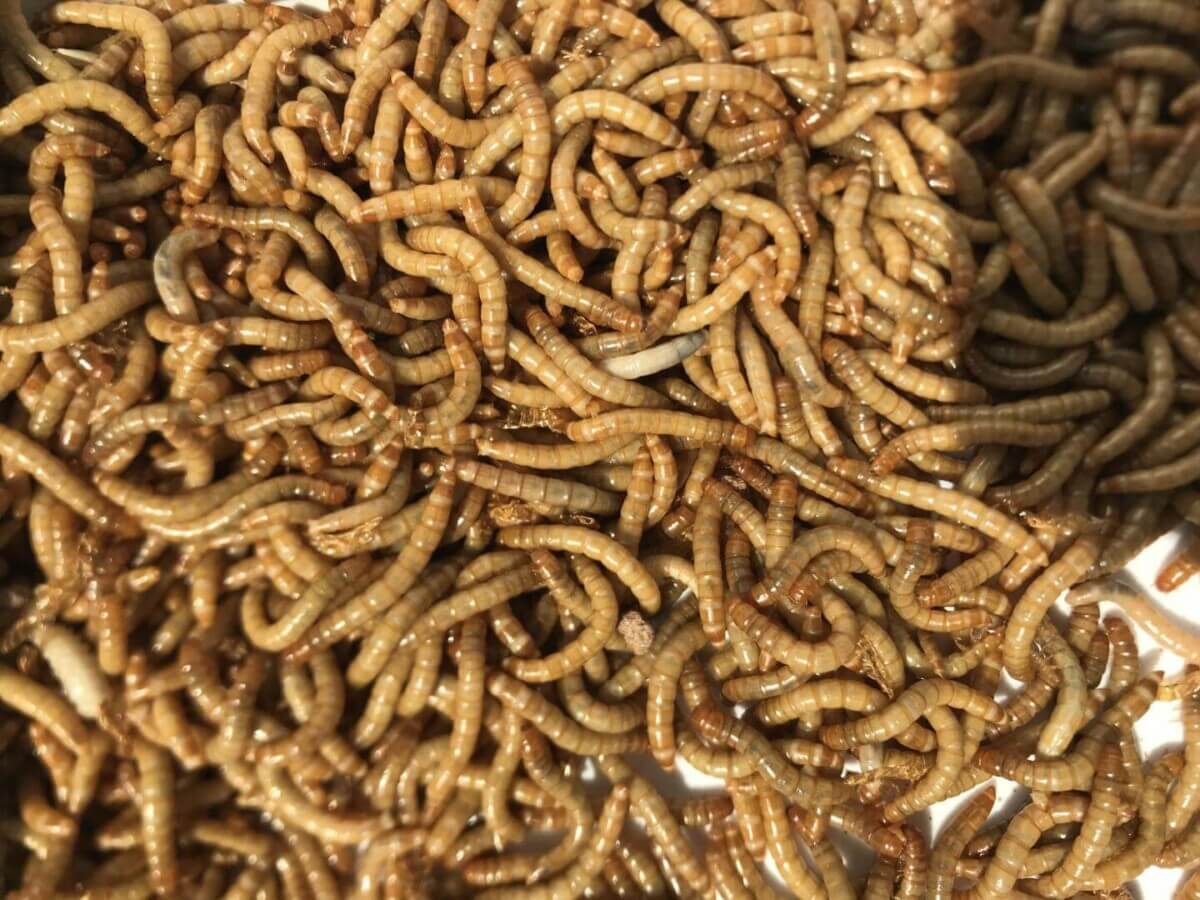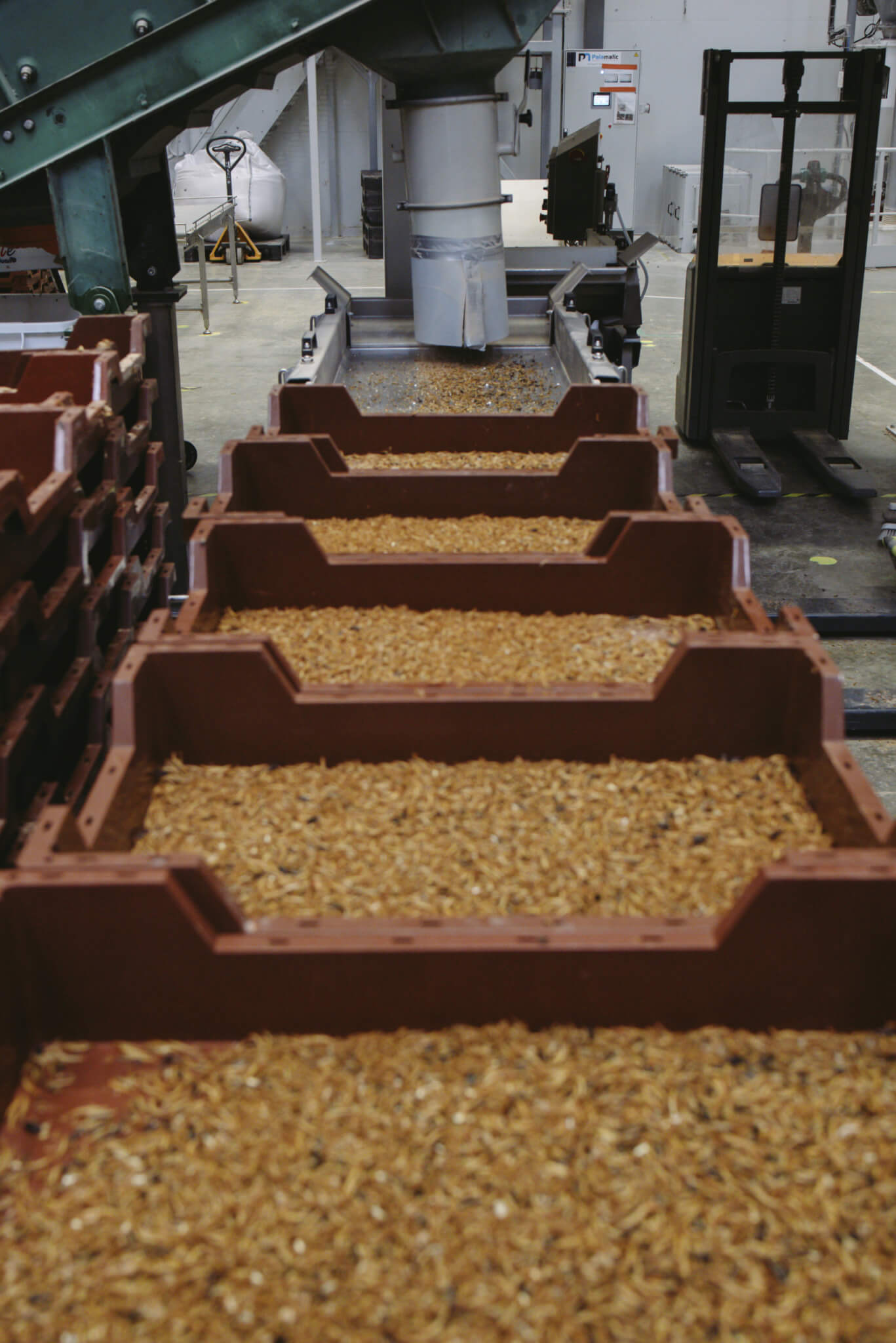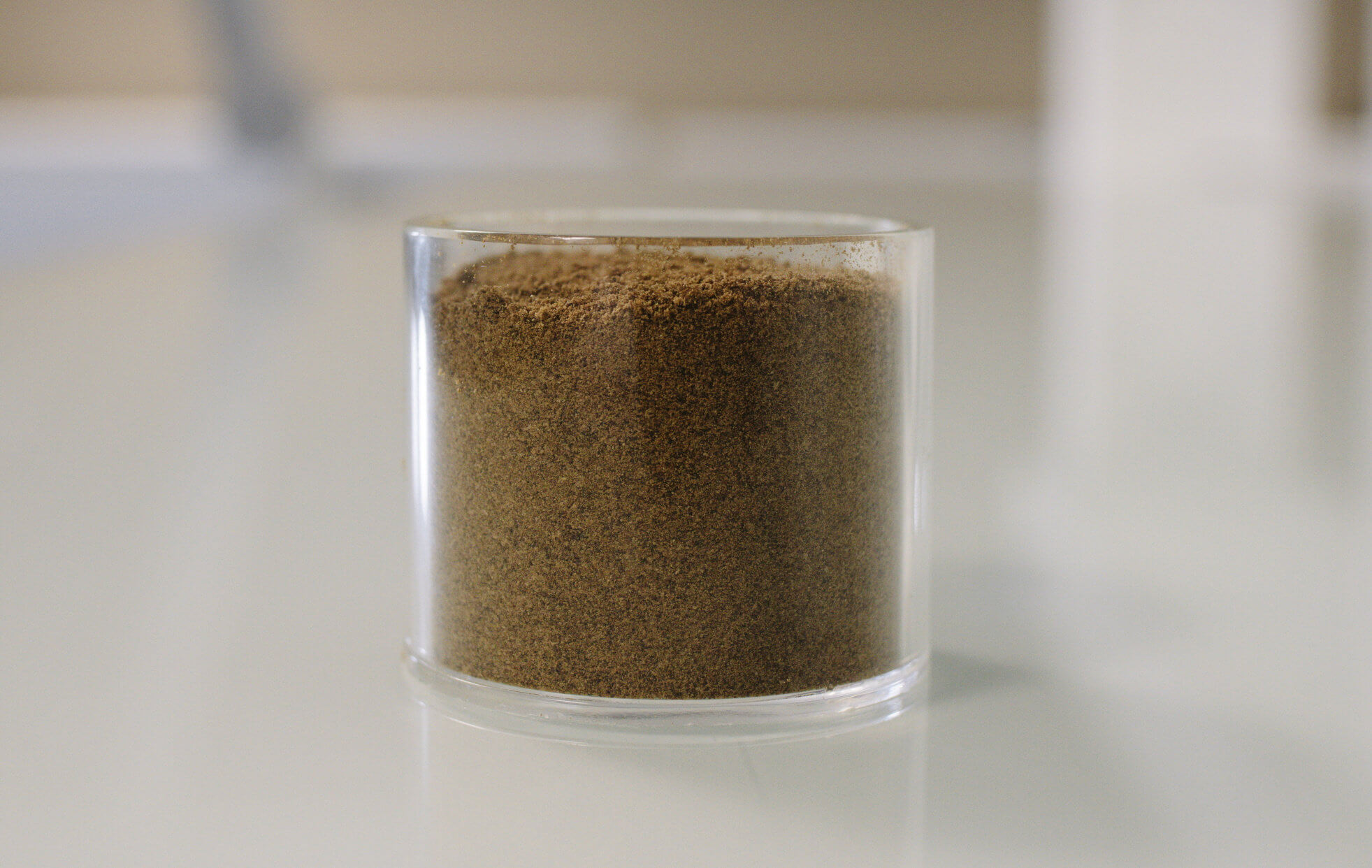
The yellow mealworm species Tenebrio molitor. An IUPUI-led study finds the insect could serve as a good alternate protein source in agriculture. (Image credit: Ti Eriksson, Beta Hatch)
“Mixed with sugar, the beetles supposedly taste just like real meat. They could also become alternatives to sausages or chicken nuggets.”
PARIS — Beetleburgers could soon be helping to feed the world, according to new research. The creepy crawlers' larvae — better known as mealworms — could act as a meat alternative to alleviate hunger worldwide. The process uses a fraction of the land and water and emits a smaller carbon footprint in comparison of traditional farming.
To make this a reality, French biotech company Ynsect is planning a global network of insect farms, including nurseries and slaughterhouses. A pilot plant has already been been set up at Dole in the Bourgogne-Franche-Comte region of France.
Unlike the livestock industry, where rearing is typically separate, this entire bug-based operation is under one roof.
“We are in full control of the chain of production. That gives us strength in terms of quality, security and safety,” says Benjamin Armenjon, general manager of Ynsect, according to a statement from SWNS.
Robot arms and automated conveyor belts transport stacks of red trays in every direction. They are are filled with billions of Tenebrio molitor beetle larvae. The dried critters are more than 50 percent protein and rich in fiber and fats as well.

They can be turned into protein powders, shakes, burgers, cereal bars, and even cooking oils at a fraction of the environmental cost of traditional farming. For every one kilogram of protein, Ynsect uses 98 percent less land and emits 40 times less carbon than beef. It also uses 40 times less water than pork production.
The mealworms are fed byproducts from wheat processing. Mixed with sugar, the beetles supposedly taste just like real meat. They could also become alternatives to sausages or chicken nuggets.
The firm is experimenting with optimal conditions for mass production — such as food,
temperature, and humidity — at its Paris headquarters.
Ynsect researchers are also analyzing nutritional content and the potential of using other insects. A bigger factory is opening in Amiens later this year. It will manufacture 200,000 tons of insect-based foods a year, making it the world's biggest insect farm.
The ambitious project will bring costs down to compete with rivals churning out soy and veggie burgers.

Estimates project that the human population will reach almost 10 billion by 2050. Meat is basically protein, fat, and water. There is growing demand for resource-intensive, animal-based products. However, food insecure regions are in desperate need of more options.
Researchers believe climate change will have significant implications for diet and nutrition in the future. Eating insects has become a trending topic because of the increasing cost of animal protein, as well as the associated environmental issues.
Consuming cows, pigs, and sheep requires large amounts of food, water, and land. Beetles, on the other hand, are edible, nutritious, and much more sustainable. In many countries, munching on them fills people with revulsion. Some manufacturers are selling cooked mealworms as crunchy, salty snacks, but acceptance is not widespread.
Ynsect makes chemical fertilizers for plants, pet food, and farm feeds for pigs and chickens. However, mealworms were approved for human consumption in the European Union in 2021. The company expects the market to grow rapidly in the coming years.
The company says it hopes to open 15 such factories by 2030, including the world's largest insect
farm in Amiens, France. In December, the United Kingdom announced a $19 million competition to find low-emission ways to produce food. Insects may be a large part of the solution.
“Insect protein is just going to grow in terms of the acceptance of it and how many people eat it - the market will grow and develop,” says Olivia Champion of Entec Nutrition, an insect-based animal feed company in the U.K.
Success will depend in large part on the form in which people consume the insect-based food, Champion adds.
A burger with insect protein in it is likely to be more palatable to consumers than fried
whole mealworms, for instance. Ynsect believes with enough education, cultural attitudes will shift over time. Armenjon sees insects as part of an alternative meat ecosystem, with some people eating lab-grown meat and others sticking to plant-based alternatives. However, he hopes some will choose insect-based foods.
“There are vegan people, flexitarians, vegetarians, meat lovers - this is fine, we don't want to change people,” Armenjon tells SWNS.
South West News Service writer Mark Waghorn contributed to this report.











Are you really that stupid? Remember when they tried to force us to eat ostrich meat or algae? I don’t but I remember them trying to find a market. Nobody is forcing anything. Vote with your wallet and don’t buy what you don’t like. And stop making up stupid conservative bullshit.
OR, instead of resorting to eating bugs, we reduce the surplus population by half eliminate all the problems we face as a species
Like the vaccine is doing now? We can handle millions more. It is money hungry people in power that refuses to take the steps we need. Fuel can easily be created by algae. The issues we have with farm animals and the environment is strictly due to the federal regulations.
I have tried to eat a cicada before. The taste wasn't bad, but the texture was too much for me.
Not only is this disgusting, but it lacks immense nutrition value for humans. Humans are not meant to eat bugs or even produce, for that fact. If we were, we would have been born with 3 or 4 stomachs, being a ruminant or a pseudo. We are neither. It is scientific that bugs and plants produce a toxin which destroys any nutritional value to humans.
Studies today lack proper scientific knowledge and actual studying to provide legitimate information to back up their claims. They no longer do the proper testing or even enough rat/human experiment. A few hundred isn't proper. In the past, we did experiments on thousands.
Guess what mealworms eat? Grain, wheat bran & the like. Very expensive food for very little return. I use mealworms to catch food.
This should be the only food available on private jets
It's wonderful that these worms have so much protein. And it's great that meat is basically just protein and fat and water. But are the worms healthy for human bodies to digest? Is it heart healthy? When the top 5% of the French economy are eating mealworms daily, I might try it. I want to see some pretty creative cookbooks. Gordon Ramsay, get busy.
Great... except for the many people who react badly to wheat gluten or are diabetic...
How do they remove the insect poop before processing? Oh, they don't. It's impossible.
This is both disgusting and disturbing, and will never be mass adopted as long as I have any say, which I intent to have, especially when it comes to my, and my communities food!
I have a much better idea. How about the governments of the world, stop sabotaging our food sources and kneecapping our farmers, and let them do their jobs! You people supporting this twisted ideology and its mechanisms, should be in an asylum, where you can do no more harm to our environment or the worlds population in general.
Disgraceful!
Not only no, but hell no. ... And of course they think the solution is adding sugar to everything. Haven't people wised up yet? The sugar industry lied and paid off researchers to falsify data so that sugar could be added to just about everything. For about 60 years we have been living with lies when it comes to nutrition.
Who paid you cretins to write this article?
I’m going to pass until the roaches are on the menu.
From Mike Adams of Natural News.com-Humans cannot eat crickets due to chitin in the sharp exo-skeletons and other disgusting reasons.
https://www.naturalnews.com/2023-02-06-cricket-exoskeletons-contain-chitin-parasites-and-pathogens.html